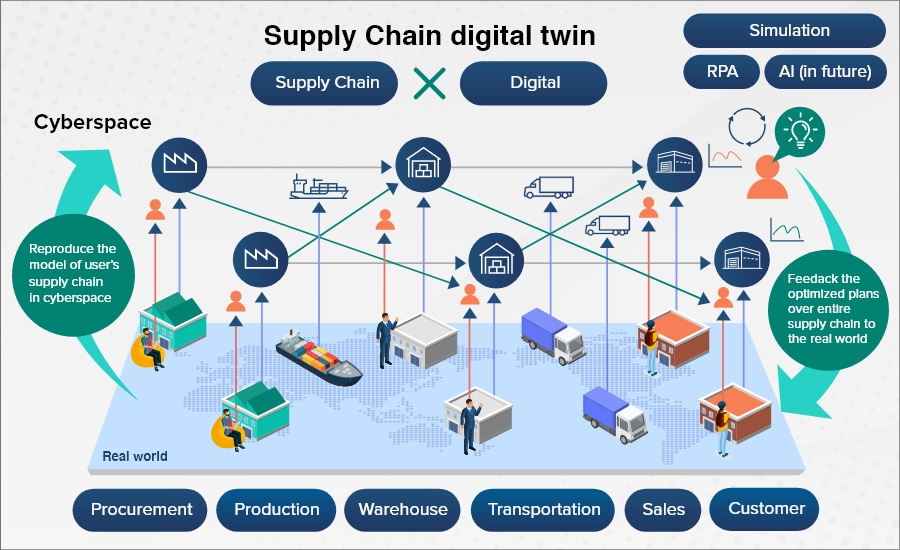
Introduction
The supply chain landscape is undergoing a profound transformation fueled by technological advancements. Traditional supply chain practices are giving way to digital solutions that promise enhanced efficiency, transparency, and agility. In this blog, we will explore the ways in which technology is reshaping the supply chain and revolutionizing the way businesses operate. From automation and data analytics to artificial intelligence and blockchain, let’s dive into the key technologies that are driving this digital revolution.
- Automation: Streamlining Operations
One of the most impactful changes brought about by technology in the supply chain is automation. From robotic process automation (RPA) to autonomous vehicles and drones, automation is eliminating manual and repetitive tasks, boosting operational speed, and reducing errors. Warehouse operations, inventory management, and order fulfillment processes are being optimized with the help of automation, enabling businesses to achieve faster turnaround times and cost savings.
- Data Analytics: Driving Insights and Decision-Making
The vast amount of data generated within the supply chain is being harnessed through advanced analytics tools. With the help of predictive analytics and machine learning algorithms, businesses can gain valuable insights into demand patterns, inventory optimization, and supply chain performance. Real-time data analytics enable proactive decision-making, allowing companies to identify bottlenecks, improve forecasting accuracy, and optimize their supply chain processes for better customer satisfaction.
- Artificial Intelligence: Enhancing Efficiency and Predictability
Artificial intelligence (AI) is revolutionizing the supply chain by introducing intelligent systems capable of learning, reasoning, and making decisions. AI-powered solutions can automate demand forecasting, route optimization, and predictive maintenance, resulting in increased operational efficiency. Machine learning algorithms enable continuous improvement by analyzing historical data and identifying trends, helping businesses respond to dynamic market conditions with agility and accuracy.
- Blockchain: Ensuring Transparency and Trust
Blockchain technology is transforming supply chain operations by providing an immutable and transparent ledger of transactions. With blockchain, businesses can track and trace products throughout the entire supply chain, ensuring authenticity and eliminating counterfeit goods. Smart contracts enable automated verification and execution of agreements, reducing administrative costs and enhancing trust among supply chain partners. Blockchain also facilitates faster and more secure cross-border transactions, eliminating intermediaries and reducing delays.
- Internet of Things (IoT): Enabling End-to-End Connectivity
The Internet of Things (IoT) is creating a network of interconnected devices that gather and exchange data. In the supply chain, IoT devices such as sensors, RFID tags, and connected vehicles enable real-time monitoring and visibility of assets, shipments, and environmental conditions. This data-driven visibility improves inventory management, reduces losses, and enhances overall supply chain responsiveness. IoT-powered predictive maintenance also helps prevent equipment failures, reducing downtime and improving operational efficiency.
Conclusion
The digital revolution is reshaping the supply chain, empowering businesses with unprecedented opportunities to enhance operational efficiency, customer satisfaction, and profitability. By embracing automation, data analytics, artificial intelligence, blockchain, and IoT, companies can streamline their operations, make informed decisions, ensure transparency, and achieve end-to-end connectivity. The transformation from traditional supply chain practices to digital solutions is no longer an option but a necessity for businesses seeking a competitive edge in today’s rapidly evolving marketplace. Embracing technology-driven changes is key to unlocking the full potential of the supply chain and driving success in the digital era.
